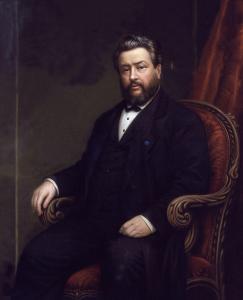Why do the Ten Commandments get so little attention in preaching and evangelism?
What Must I Do?
What was the intended purpose of God’s Law. Let’s begin with a rich man came up to Jesus and asked, “Good Teacher, what must I do to inherit eternal life?” And Jesus said to him, “Why do you call me good? No one is good except God alone. You know the commandments: ‘Do not murder, Do not commit adultery, Do not steal, Do not bear false witness, Do not defraud, Honor your father and mother” (Mark 10:17b-19). However, the young man, sounding self-righteous, said “Teacher, all these I have kept from my youth.” And Jesus, looking at him, loved him, and said to him, “You lack one thing: go, sell all that you have and give to the poor, and you will have treasure in heaven; and come, follow me.” Disheartened by the saying, he went away sorrowful, for he had great possessions” (Mark 10:20-22). When the man says he’d kept all the commandments (which is impossible), Jesus doesn’t stop him and say, “Don’t worry about the Law, we’re under grace,” but rather, Jesus indicates their validity as He reveals that the man’s god was his money, thus breaking the First Commandment. Of course it’s impossible to keep the Ten Commandments, just like it is the speed limit at all times, but that doesn’t mean we have liberty to speed. The rich man didn’t get it. It’s not about doing this or doing that, but about what Jesus has already done. It was finished (John 19:30), or paid in full at the cross! It’s not what you or I must do…it’s what He’s already done, but just because we’re under grace doesn’t mean we can dishonor our parents, steal, or bear false witness.
The Ten Canons
The Ten Commandments are like ten canons, aimed right at us on the firing squad. Even now, the appointed fuse is set (Heb 9:27; Rev 1:7, 20:12-15), but if not for the Law, we’d not even know we’re on death row. The Law showed me that I was a law breaker and in desperate need of God’s mercy and grace, and like others, it made me run to the cross and seek God’s mercy, so it is not the Law that is bad…it is the lawbreakers. The Law shows us what sin is (Rom 7:7), which is the transgression of God’s Law (1 John 3:4), but since we’re all guilty before God, we are left with one of two choices. Put our trust in the Advocate, Jesus Christ, and receive His righteousness (2 Cor 5:21), or reject Him Who is the one and only way to the Father (John 6:44; Acts 4:12). Now that the Law has shown us what sin is, we should strive to resist it when we’re tempted. Before, we were like dead fish floating downstream. It was only because of God’s Spirit quickening us that we realized our perilous state (Eph 2:1-4), however we must remember that being forgiven does not make us better than others. We are not better than others; only better off than others. And it was only because of Him. It was nothing we did (Eph 2:8-9). The Law acts on the conscience and the Spirit works conviction, so the Law is a good thing because it brings us to our knees, and makes us see our need for the Savior.
Charles Spurgeon’s View
The late Charles Spurgeon (1834-1892) is one of my favorite preachers. In his lifetime he is known to have preached to over 10 million people, with audiences averaging around 10 thousand, and Charles Spurgeon taught the Ten Commandments like few others. That may have been why so many were lead to Christ. The Word of God, just like the Law, convicts the comfortable. That’s why Spurgeon frequently referred to the Ten Commandments in his preaching, and why Martin Luther prayed through each one for forgiveness for breaking them all! Charles Spurgeon was one of the boldest preachers and witnesses for Christ that I know of. He once said, “If sinners be damned, at least let them leap to Hell over our bodies. And if they perish, let them perish with our arms about their knees, imploring them to stay. If Hell must be filled, at least let it be filled in the teeth of our exertions, and let not one go there unwarned and unprayed for.”
Spurgeon and the Commandments
The Ten Commandments, like ten great pieces of cannon, are pointed at thee to-day, for thou hast broken all God’s statutes, and lived in the daily neglect of all his commands.
The Ten Commands surround us on all sides, and encompass all the movements of body, soul, and spirit, comprising under their jurisdiction the whole range of moral action; they hold us under fire from all points, and nowhere are we out of range.
I find it sometimes profitable to myself to read the Ten Commandments, and to think over my sins against each one of them. What a list it is, and how it humbles you in the dust to read it over!
Read the Ten Commandments, and pause at each one, and confess that you have broken it either in thought, or word, or deed. Remember that by a glance we may commit adultery, by a thought we may be guilty of murder, by a desire we may steal.
The law of the Ten Commandments is strictly just; it is such a law as a man might make for himself if he studied his own best interests, and had wisdom enough to frame it aright. It is a perfect law, in which the interests of God and man are both studied; it is not a partial law, but impartial, complete, and covering all the circumstances of life. You could not take away one command out of the ten without spoiling both tables of the law, and you could not add another command without being guilty of making a superfluity. The law is holy, and just, and good; it is like the God who made it, it is a perfect law.
Conclusion
Charles Spurgeon once said, “I do not believe that any man can preach the gospel who does not preach the Law.” Then he warns, “Lower the Law and you dim the light by which man perceives his guilt; this is a very serious loss to the sinner rather than a gain; for it lessens the likelihood of his conviction and conversion. I say you have deprived the gospel of its ablest auxiliary [its most powerful weapon] when you have set aside the Law. You have taken away from it the schoolmaster that is to bring men to Christ . . . They will never accept grace till they tremble before a just and holy Law. Therefore the Law serves a most necessary purpose, and it must not be removed from its place.” I find comfort in the fact that it’s by grace and not Law that we are saved; otherwise we’d all be without hope, however realizing we are not saved by law-keeping but by grace, we are still constrained to obey the Law because it is holy, just, and good (Rom 7:12).
Article by Jack Wellman
Jack Wellman is Pastor of the Mulvane Brethren Church in Mulvane Kansas. Jack is a writer at Christian Quotes and also the Senior Writer at What Christians Want To Know whose mission is to equip, encourage, and energize Christians and to address questions about the believer’s daily walk with God and the Bible. You can follow Jack on Google Plus or check out his book Teaching Children the Gospel available on Amazon.












